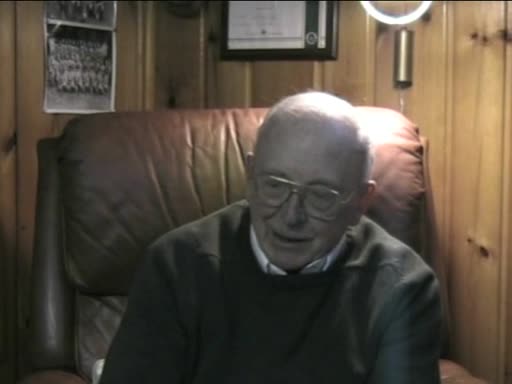-
Title
-
William B. Tracy, Oral History
-
Performer
-
William B. Tracy
-
Interviewer
-
Janet Fogal and Andrew Green
-
Description
-
Like many young men of his generation, William "Bud" Tracy served in the Armed Forces during World War II. Eager to see the world, he chose the Navy because he could enlist at seventeen and his uncle could help him through the process. He left high school before his graduation date, but made up the credits by enlisting. Mr. Tracy's wartime service was spent in the South Pacific including the Admiralty Islands. Tracy loved being in the service despite facing the same fears and frustrations that other young men encountered.When Tracy returned home after his military service was over, he utilized the G.I. Bill to enroll in college. He had a successful career working for the phone company and raised a family. Tracy was very humble in his accounts of his experiences during World War II, yet even in the short time it took to conduct the interview, there were examples of his bravery and heroism.
-
Run Time
-
1 hour, 15 minutes, 15 seconds
-
Publisher
-
American Folklife Center, Library of Congress
-
Subject
-
Enlisted; United States Navy; Lion 4; World War, 1939-1945; Second World War - Pacific Theater; United States; Gunner's Mate Third Class
-
Language
-
English
-
Spatial Coverage
-
Second World War - Pacific Theater; United States
-
Date
-
Dates of Service: 1943-1946
 W. B. Tracy video
W. B. Tracy video 
